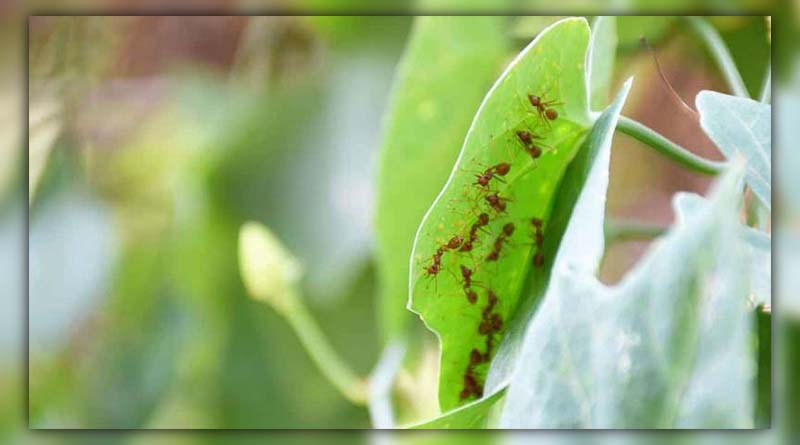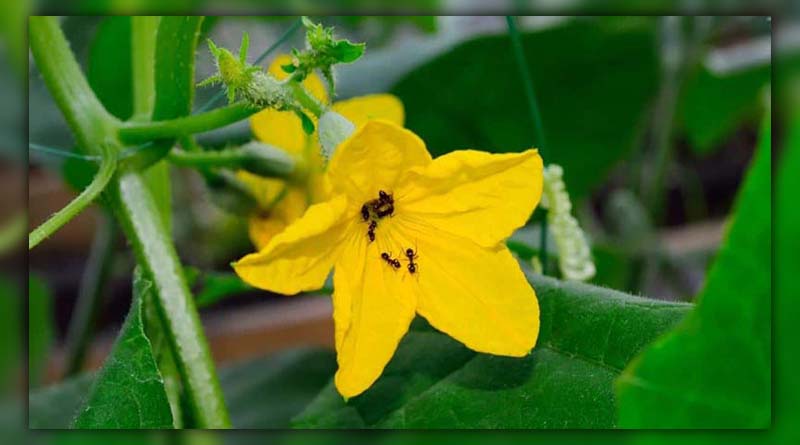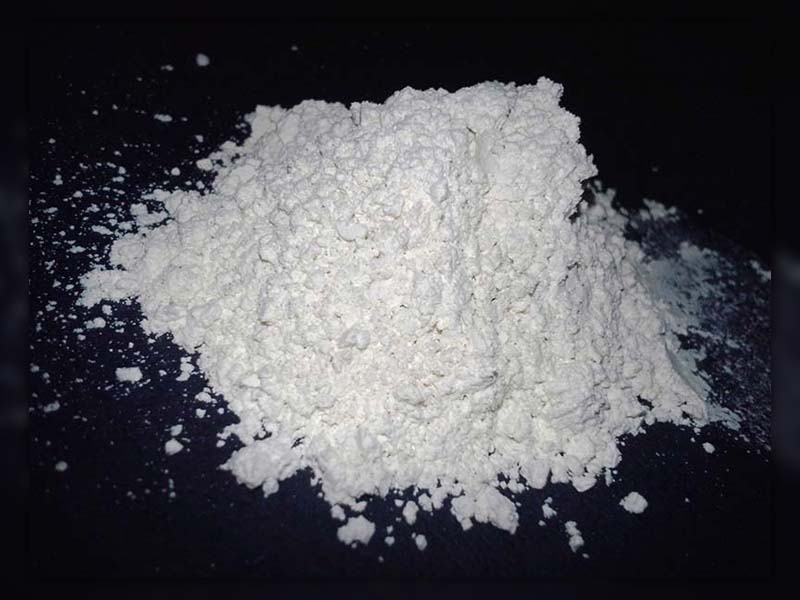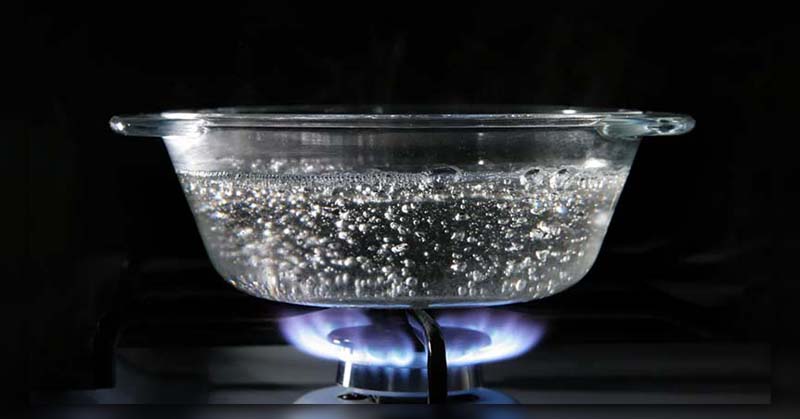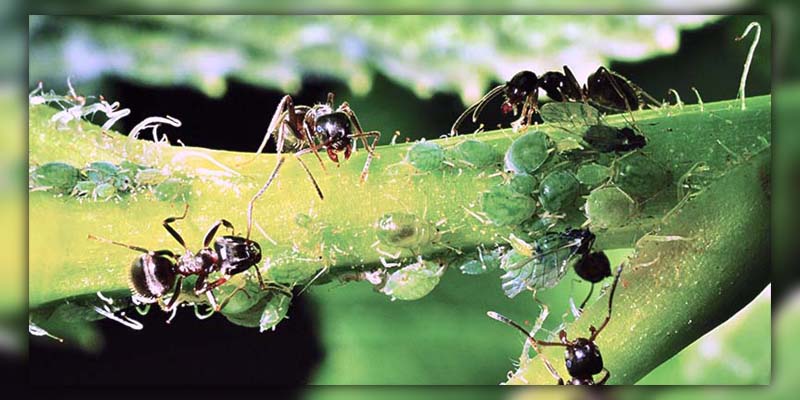Do you love growing cucumbers in your garden? Do you notice ants on your cucumber plants and wonder if they are helping or harming them? Do you want to know how to control ants on cucumber plants without harming your crops or the environment? If you answered yes to any of these questions, then this blog post is for you.
In this article, you will learn why ants are attracted to cucumber plants, what effects they have on them, and how to manage them effectively.
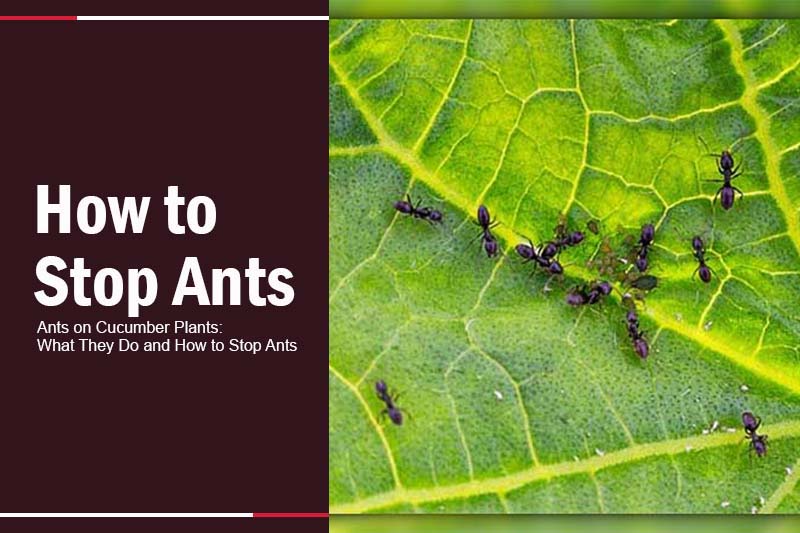
Why are there ants on my Cucumber Plants?
Ants are usually attracted to cucumber plants because of the honeydew produced by aphids or other insects that feed on the plant sap. Ants feed on the honeydew and protect the aphids from predators and parasites. Ants can also be drawn to the nectar of cucumber flowers or the moisture of cucumber plants.
Will ants hurt cucumber plants?
Not all ants are are destructive to plants. However, some like the leafcutter and fire ants can hurt cucumber plants especially if they are still young, soft, and tender. A large-scale infestation of ants in the soil can also discourage the growth of young plants.
Black ants on cucumber plants
Black ants on cucumber plants are known as Argentine ants. They are attracted to the plants if there is an infestation of other insects that0 produce honeydew. If there is a good amount, they will nest around the plant roots. They are seen crawling on the cucumber stems and leaves while hunting for honeydew left by other insects.
They are commonly known as sugar ants because they love sweet food and fluids. It has been proved that they protect other pests that produce honeydew because they need them. They can only hurt cucumber plants if they seriously multiply. They dig deep tunnels near the plant roots which can easily harm young cucumbers plants with weak roots.
Red ants on cucumber plants
Fire ants on cucumber plants can be extremely detrimental to cucumber plants. They can live off the honeydew that is left behind by other pests and sometimes feed on plant sap. They can chew through leaves, stems, and even flowers of cucumber plants causing damage to the plant itself. Red ants are usually very small in size and are also known as fire ants.
During an infestation, fire or red ants stay hidden under cucumber plant leaves while feeding on the honeydew that has been left behind. They can also feed on the sap from cucumber plants’ leaves, especially if they are near aphids or mites that have already started feeding off of them.
Since they have sharp mouth parts that can cut, they will stay under leaves while chewing through plant stems and flowers to get at the sap inside of them. They usually come in large numbers and if there is nothing to feed on, they can destroy young cucumber plants. They should never be left to breed in the garden since they can also kill important insects and worms that come out after rains.
How to get rid of ants on cucumber plants?
Soapy Water Spray
A simple and safe way to get rid of ants on cucumber plants is to use a soapy water spray. It also works for many other pests, such as aphids, spider mites, and whiteflies.
- Fill a 2-gallon sprayer with water (7.5 L). A 2-gallon sprayer is better for making soapy water sprays because you can keep the leftover spray for days or weeks.
- Then add 4-5 tablespoons of castile liquid soap (15-30 ml).
- Shake the sprayer well and then spray my plants all over. Do this in the late afternoon to avoid harming pollinators or damaging my plants by spraying in the hot sun.
Spray soapy water every day for 4-5 days.
Neem Oil Spray
Neem oil is a natural and safe way to repel ants from your cucumber plants. The oil comes from the seeds of the neem tree (Azadirachta indica), which has a chemical called azadirachtin that kills any insects that eat it.
Most ants don’t eat your plants, but they do feed on the sweet drops from aphids. This way, they can get neem oil in their system or bring it back to their colony.
This is how prepare our neem oil spray:
- Use a 1/2 gallon water sprayer (1.9 liters) or a 1-gallon sprayer for bigger gardens. Avoid using a 2-gallon sprayer because can’t use all the neem oil in one go, and can’t keep it after mixing it with water.
- Add 1 tablespoon of neem oil (15 ml) for every 1/2 gallon of water.
- Also add 2 teaspoons (10 ml) of castile liquid soap for every 1/2 gallon of water, which helps to mix the oil and water. You should know that neem oil can be tricky to use. You can spray too little or too much, you can spray too early or too late, and you can spray unevenly.
You can even damage your plants if you spray at the wrong time of day.
So, unlike soapy water, you need to learn more about neem oil before you start spraying your plants with it.
Orange Oil Spray
Orange oil sprays are a great way to keep your plants healthy and pest-free. Orange oil is extracted from orange peels and has a strong citrus smell that repels ants and other insects. You can easily make your own orange oil spray at home with these simple steps:
- First, fill a 1-gallon (7.5 L) sprayer with water. This will prevent the soap from foaming up when you add the orange oil.
- Next, add 2 ounces (59 ml) of orange oil to the water. You can use any brand of orange oil, but I personally prefer Green Gobbler because it works well for me.
- Then, add 2 teaspoons (10 ml) of your favorite natural liquid soap and shake the sprayer well to mix everything together.
Finally, spray the solution on any areas where you see aphids, ants, or other pests on your plants. Make sure to do this in the evening or when the sun is not too bright, as orange oil can damage your plants if exposed to direct sunlight.
Boric Acid Bait
Boric acid is a powerful and long-lasting way to eliminate ants. It works by destroying their digestive system when they eat it.
To make your own boric acid ant bait, follow these steps:
- Combine boric acid with honey or peanut butter to form small balls that are attractive to ants.
- Put the balls near the places where you see ants or their trails, so they can find them easily.
Be careful not to let children or pets near the boric acid bait, as it can harm them if they ingest it. If you have kids or pets in your home or garden, you may want to avoid using boric acid and try some safer alternatives.
Vinegar Spray
Vinegar sprays are a natural and effective way to keep ants away from your cucumber plants. Vinegar has a strong, acidic smell that interferes with the ants’ sense of smell and their ability to follow pheromone trails.
To make your own vinegar spray, you will need:
- A garden sprayer
- White vinegar
- Water
- Peppermint essential oil (optional)
Here are the steps to follow:
Fill the garden sprayer with a 50/50 mix of white vinegar and water.
If you want, you can add 5-10 drops of peppermint essential oil to the mix for extra repellency.
Spray the solution on any ants or nests that you see on or near your cucumber plants.
Repeat the spraying every day as needed, preferably in the evening or when the sun is not too bright.
Diatomaceous Earth
Diatomaceous earth is a type of sand that comes from fossilized algae. It has a soft texture, but under a microscope, it has sharp edges that can cut and kill insects.
You don’t have to worry about hurting yourself or your pets with diatomaceous earth. It is safe to touch, but you should avoid getting it in your eyes, nose, or mouth because it can irritate them.
To use diatomaceous earth as an ant repellent, follow these steps:
Buy food-grade diatomaceous earth. This is the only kind that is suitable for human and animal consumption. Other kinds of diatomaceous earth may contain harmful chemicals.
Sprinkle the diatomaceous earth around the base of your cucumber plants. This will prevent ants from climbing up the vines. You can also sprinkle it on top of ant nests or use a duster to apply it lightly on your plants that have ants on them.
Keep the diatomaceous earth away from children and pets. They may try to eat it or play with it, which can be dangerous. Also, be careful not to dust too much diatomaceous earth on your plants, as it can harm beneficial insects as well.
Cinnamon Oil and Powder
Cinnamon is a spice that has a strong smell that ants hate. It can help you keep ants away from your plants, but it won’t kill them. It only creates a barrier that they don’t want to cross.
You can use cinnamon in two forms: oil or powder. Cinnamon oil can be mixed with water and sprayed on your plants, but it can be costly and less effective than other sprays, such as orange oil or soapy water.
Cinnamon powder is more potent and easier to use. However, it can also be messy and washed away by rain or wind.
If you want to try cinnamon as an ant repellent, here are the steps to follow:
- Look for the places where your plants touch the ground and sprinkle some cinnamon powder around them.
- Find any ant nests near your plants and sprinkle some cinnamon powder between them and your plants.
- Repeat the sprinkling every day or after it rains or gets windy.
Peppermint Essential Oil
Peppermint essential oil is a natural way to keep ants away from your home and garden. It has a strong, minty smell that ants don’t like and that disrupts their communication. However, it can also be dangerous for dogs and cats, so you should be careful if you have pets.
To make your own peppermint essential oil spray, you will need:
- A 16-ounce (0.5 L) spray bottle
- Water
- Peppermint essential oil
- A funnel
Here are the steps to follow:
Using the funnel, fill the spray bottle with water.
Add 5-10 drops of peppermint essential oil and shake well to combine.
Spray the solution on any ants or ant trails that you see in your home or garden.
Repeat the spraying once a week or as needed until the ants are gone.
Commercial Ant Baits
Commercial ant baits are products that contain both food and poison for ants. They are designed to lure ants and kill them.
If you have ever used Terro liquid ant bait traps, you may have noticed that many ants gather around them at first, but then they disappear after a few days.
This is because the ants are attracted by the food in the traps and take some of it back to their nest. There, they share it with other ants, including the queen. The poison in the food slowly kills the ants and their colony.
To use commercial ant baits effectively, follow these steps:
- Buy a product like Terro from a store that sells home improvement items.
- Follow the instructions on the package to set up the bait stations. Put them near where you see ants or their nests, so they can smell the food.
- Leave the bait stations for up to a week and check them regularly. Replace them as needed until the ants are gone.
Be careful if you have children or pets in your home or garden. They may try to touch or eat the bait stations, which can be harmful to them.
Boiling water
Boiling water is a simple and quick way to kill ants and their nests, but it is not very accurate or safe for your plants.
You should only use boiling water on ants that are not near your garden plants, because the hot water can harm the roots and soil.
Boiling water is best for ant mounds that you find on your lawn or pavement, not for ants that are on your plants or in your garden.
To use boiling water as an ant killer, follow these steps:
- Heat up a large pot of water on the stove until it boils. Make sure the pot is big enough to hold enough water, but not too heavy to carry.
- Turn off the stove, wear some gloves, and ask someone to open the door for you. Then, carefully take the pot of water outside.
- Pour the boiling water slowly and directly on the ant nest. Don’t pour it all at once, but let it soak in and then pour more. This will avoid wasting water and flooding other areas.
Do this once every day or two or as needed until the ants are gone.
FAQs
Do ants help or hurt Cucumber Plants?
While certain species of ants are known to perform beneficial tasks in the garden, such as breaking down organic material and helping with pollination, many ants can be harmful to cucumber plants. These ants are attracted to honeydew, a sugary substance produced by insects like aphids and whiteflies, which are harmful to your plants.
Additionally, some types of ants, like black Argentine ants and red fire ants, can potentially harm cucumber plants by tunneling near the roots or feeding on the plant sap.
Can ants protect cucumber plants from pests?
Interestingly, ants can have a protective effect on cucumber plants, but not in the way you might want. They are known to farm and protect pests like aphids that produce honeydew, which is a major food source for them.
While this might reduce the number of other predators or pests, the aphids themselves can damage the plants by feeding on their sap. So, although ants might deter some pests, they often bring and encourage others that can be equally, if not more, harmful to your cucumber plants.
Are there natural ways to repel Ants from Cucumber Plants?
Yes, there are many natural ways to repel ants from your cucumber plants. As mentioned earlier, substances like diatomaceous earth, cinnamon oil, and a soap-water mixture can be very effective.
Additionally, certain plants like mint and certain types of marigolds are known to deter ants. These can be interplanted with your cucumbers to help keep the ants at bay. Another natural remedy involves making a spray with citrus peel and water, as ants dislike citrus.
Do Ants hate Cucumbers?
There is no direct evidence to suggest that ants inherently dislike cucumbers. However, they are attracted to the honeydew produced by pests on cucumber plants. If you can manage and control these pests, your cucumber plants will be less attractive to ants. Conversely, ants are known to be repelled by certain substances like cinnamon oil, citrus, and peppermint, which can be used as natural deterrents.
Conclusion
Ants on cucumber plants can be a nuisance, but they are not always a threat. Sometimes, ants can help your plants by pollinating them, protecting them from pests, or improving the soil. However, if ants are causing damage to your plants or bringing aphids to them, you may want to get rid of them.
We hope this blog has helped you learn more about ants on cucumber plants and how to deal with them. If you want to read more about pest control and gardening tips, please visit our website at Pestweek.

Calina Mabel has over 15 years of experience in the field of journalism and communications. Currently, Calina Mabel is the Content Writer for categories such as Cockroach, Ants, Bed Bugs, Mosquito, Rodent, Termite, and Flies on Pestweek.com. She aims to build content for these categories with a focus on providing valuable and accessible information to readers, in order to create the world’s largest knowledge community about Pests.
All content written by Calina Mabel has been reviewed by Emily Carter.


